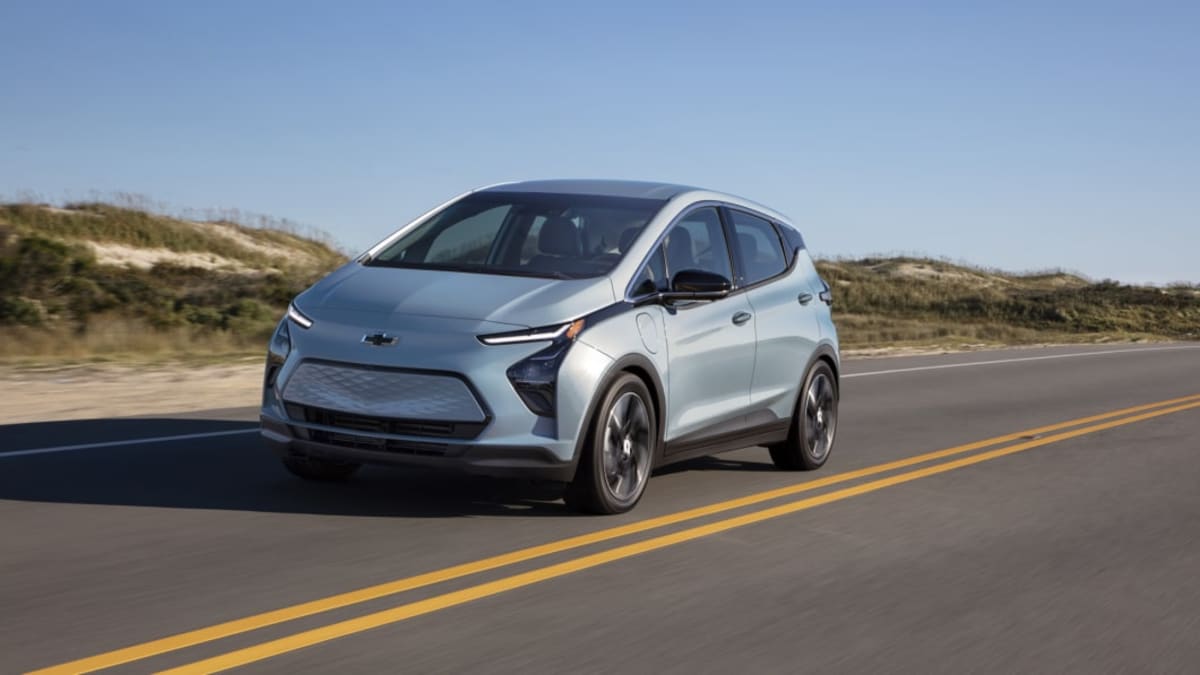We only have a crumb for now, observers gathering morsels of intel on what to expect of the next-generation Chevrolet Bolt. During GM's Q3 earnings call, CEO Mary Barra confirmed the hatchback's return, telling analysts, "I know there has been some speculation in the market as to why we are developing a new Bolt EV. Our strategy is to build on the tremendous equity we have in the brand and to do it as efficiently as possible." The efficiency bit is the key phrase in that sentence, Barra explaining that GM can get the new Bolt to market quicker than a vehicle program from scratch while " saving billions in capital and engineering expenses." A big part of that savings comes from the plan to use lithium-iron phosphate (LFP) batteries, which are markedly less expensive than the lithium-ion pack in the current car and the nickel-cobalt-manganese-aluminum (NCMA) chemistry in GM's Ultium packs. Barra explained, "This is will be our first deployment in North America of LFP technology in the Ultium platform."
LFP cells are going into more vehicles across the EV landscape, already used in base versions of the Tesla Model 3 and Model Y since 2021, and the base Ford Mustang Mach-E, and they're headed to the F-150 Lightning. They're headed for a new entry-level version of the Rivian R1, meaning we wouldn't be surprised to see them in the Rivian R2 as well. Toyota's planning LFP cells for its lower-cost EVs. One analyst said he believes 250 EVs will run on LFP cells by 2030, not that carmakers want you to know that. According to a piece in Ars Technica from the beginning of the year, LFP batteries were 20% less expensive per kilowatt-hour than nickel-manganese-cobalt cells. A PC Mag report on the chemistry opined that carmakers like the batteries for their cost, performance, longer lifespan, and lower risk of overheating, but don't like talking about them, perhaps because of their associations with inexpensive trims and their charging performance that lags behind the pricier chemistries. The cells seem a good fit for a new Bolt depending on the price, although we're certain some potential customers won't like the downgrade no matter the cost.
Barra didn't mention the battery supplier. There are options: Chinese energy company CATL makes LFP calls, GM partner LG Energy plans to produce them in Michigan. Earlier this year, GM put money into Silicon Valley company Mitra Chem, but it's not clear when Mitra Chem's batteries will be ready for production. The eventual pack is expected to go into an Ultium platform and use Ultium motors, but who knows.
For that matter, we don't know when the new Bolt will be ready for production, either; Barra explained the typical vehicle development cycle will be cut by two years, so perhaps 2025 if the new car's already been in the works for a year. Having sold more Bolts in the first three quarters of this year than in any previous full year of sales, Chevrolet will want it to be soon.
Related Video


Sign in to post
Please sign in to leave a comment.
Continue